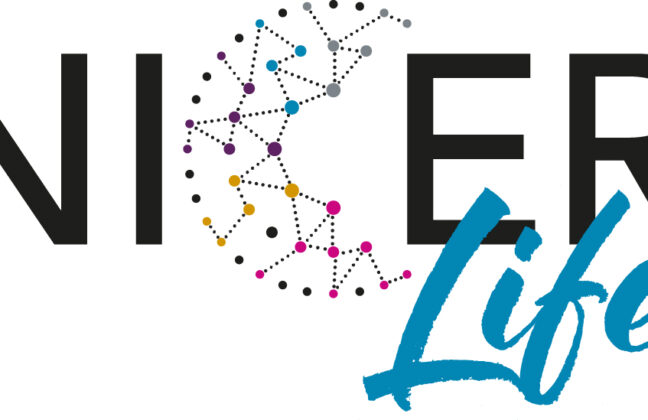Listen on the Exeter Expertise website In this podcast for Exeter Expertise, Professor Fiona Charnley discusses the importance …
News

COP28: Reflections from a PhD Student
At the end of 2023, CE Hub PhD Students Margo Reynolds and Morin Akeredolu-Ale attended the 28th Conference of the Parties of the UNFCCC. Margo shared with us her reflections of the experience.
In December 2023, I represented the University of Exeter with a Virtual Pass for the UNFCCC COP28. My research within the field of Circular Economics is inextricably linked with the climate action and sustainability agendas, so it was a privilege to get a (virtual) front row seat to a lot of the ongoing debates on climate justice, corporate (in)action, and Indigenous peoples’ engagement, to name a few.
With 70,000 delegates from nearly 200 countries presenting and debating over 13 days, it is easy to get overwhelmed and avoid engaging at all. So, I thought I would share some of the more important takeaways from my experience…
‘A fossil fuel phase out is inevitable.’ – António Guterres, Secretary-General of the United Nations
The all too often blocked conversation about commitments to phasing out fossil fuels took centre stage at COP28, with a nod to the debate in each session I attended. It is affirming to see this firm stance being taken by the UN’s Secretary-General in the close out of the conference. An excellent press conference from the Center for Biological Diversity centred on this issue, with an emphasis on the need for a fossil fuel phase out that is ‘fair, fast, and funded’. On this note, one panellist (Jax Bongon, IBON International) also called out the ‘kick big polluters out’ campaign, demanding an end to corporate capture of climate action.
‘Climate change is a matter of life and death as Indigenous peoples in all regions.’ – Tom BK Goldtooth, Executive Director, Indigenous Environmental Network
The most impactful session I joined was Defending the Sacred: Indigenous Peoples against False Solutions and Article 6 Press Conference. The panellists insisted that the inherent rights of Indigenous peoples are critical for sustainable development, whilst highlighting the insufficient government action and contradictions of the expansion of fossil fuel development. It is important to consider that a ‘Just Transition’ is defined by Indigenous peoples as decolonisation, confronting colonialism, and acknowledging indigenous science-based knowledge and solutions around adaptation.
Eriel Tchekwie Deranger, Executive Director of Indigenous Climate Action, made some excellent comments that I wanted to share verbatim:
“The health and safety of our community is being wilfully traded for economic gains and industrial wealth… 80% of the biodiversity of the world are within our [Indigenous] hands. We should be the ones putting solutions that don’t depend on our communities continuing to be sacrifice zones, that don’t depend on rising emissions, and actually look at reduction emissions at the source.”
International leaders are leaning on Indigenous communities for knowledge yet their collective negative view on ‘false solutions’ (i.e. energy technologies, hydrogen, carbon capture and sequestration and carbon capture, utilisation, and storage) continues to be ignored.
‘The world is turning to businesses for transformative solutions…through value chains.’
– Dr. Alexander Nick, Climate Action Director, World Business Council for Sustainable Development
Unfortunately, I was generally underwhelmed by sessions hosted from industry/corporate perspectives. This notion about turning to businesses for solutions is exactly the kind of talking point being challenged by the previously mentioned ‘kick big polluters out’ campaign. However, I did find the updates from Alexander Nick about a need to focus on measurement and reporting to be very interesting. He acknowledged an evident need for increased accountability by way of defining standards – moving towards intervention accounting (forward looking), to complement existing inventory accounting (of the past). There is a need to move away from agendas enacted only because of emissions reduction targets, and to incorporate ‘human needs’ more holistically (see more on this in this linked session at the 43 minutes mark).
‘He is not interested in anything as subjective as gender.’ – Dr. Patience Tunji-Olayeni, Senior Lecturer, Covenant University, Ota, Nigeria
I made a point of attending sessions with a majority female panel (I don’t think this needs further explanation as to why). One session, Empower HER, took the time to address continued gender disparities in paving the road of sustainable development, and the ongoing efforts to foster women’s empowerment, enhance employment opportunities, promote entrepreneurship, and improve education in the countries of Global South.
The quote from Dr. Patience Tunji-Olayeni is referencing one of her male PhD supervisors responding to her interest in selecting the topic of gender in STEM research for her thesis. She was continually subjected to gender stereotyping throughout her studies, and yet, declared that she would become the best she could be ‘in spite of that experience.’ As a woman in academia, I have been incredibly fortunate to be surrounded by extremely supportive colleagues, but it is disheartening to hear of these (common) experiences, and to learn that more women than ever are graduating from academic institutions globally but are then not taking on job roles. It is important to take the time to listen and learn from women contributing on the international stage of events such as COP because, as clearly stated by Dr. Ghazala Khan, women’s empowerment is a “fundamental necessity of sustainable development.”
Lightning Round of other points of interest:
- UN Innovation Hub: Launched in November 2021, and lead with the principles of ‘caring, sharing, daring’, this hub needs to go more mainstream. The hub aims to promote transformative innovations for a low-emission and climate-resilient future, with key actors including Governments (at all levels), corporates, accelerators, and researchers. Learn more here.
- Global Stocktake: A process for countries and stakeholders to see where they’re collectively making progress towards meeting the goals of the Paris Climate Change Agreement. The stocktake calls for a systems transformation. Learn more here.
- Loss and Damage Fund: The close of COP27 saw an agreement reached on establishing a fund to compensate vulnerable nations for ‘loss and damage’ from climate-induced disasters. COP28 saw a combined pledge of just over £556m from wealthy nations (…keep in mind that the annual estimated irreversible economic and non-economic losses developing countries are facing from climate change is £316bn annually). Learn more here.
I hope that these takeaways can cut through all the noise, and I encourage you to click through on anything that is of interest to you. Many thanks to Exeter Innovation and GSI for making this engagement possible.






